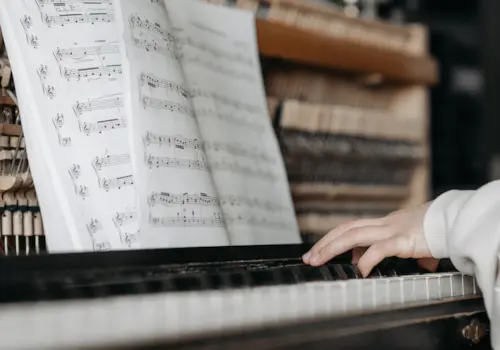24 April 2018
|
When his mammoth complete Liszt 99-disc box set was released on Hyperion a few years back, he spoke to Pianist. Read the interview
Extracted from issue 59, April-May 2011
Liszt from A to Z
Leslie Howard looks back on 30 years of recording every known piano work by Liszt, released in 2011 as a 99-disc box set on Hyperion
QUITE BY ACCIDENT, THAT’S HOW MY LISZT PROJECT BEGAN WITH HYPERION. Like almost everything else in my life that’s ever been good, it happened by chance. In 1982, the late Ted Perry [Hyperion’s founder] heard me give a recital at the Wigmore Hall. The second half of the programme was Liszt waltzes. He thought that should be put on a record. (That was the first recording, and the only one on LP. All the others went on to CD.) At the start Ted didn’t agree to record everything at all. It was just, ‘let’s make a Liszt record.’ The first one won a few prizes, so he said, ‘let’s do another.’ Then that won another prize, and so on. Ted wasn’t keen on Liszt’s opera paraphrases or opera transcriptions, but when my Liszt at the Opera came out – and that’s been the best seller – he said ‘do as you want’!
IT WAS HARD TO PROGRAMME RECITALS DURING THE LISZT RECORDINGS. Everyone wanted to hear what was on the record that had just come out, but I wanted to play repertoire for the next recording. I ended up juggling so much repertoire to try to play everything in public. I didn’t play every version of every piece from memory. I don’t think people know there are all these revised versions of several of Liszt’s pieces. There’s a problem with Liszt having so many ideas for one piece! Often, in different versions of the same piece the music is quite similar for the first 100 bars but then it goes off somewhere else. If your memory lets you down for a split second you find yourself going from version A into version B and not being able to go back.
THE BIGGEST CHALLENGE HAS BEEN FINDING ALL THE SHEET MUSIC. I’d been searching for more than 20 years before this project began. It took forever – for the album leaves, for example, I researched all over the place. Even now there are many works on my recordings that are not published. It will never finish. There’s always another album leaf that turns up – even if it might just be three bars.
Watch Howard talk about the Liszt B minor Sonata:
LISZT HIMSELF PLAYED FAST AND WAS LOOSE WITH HIS OWN TEXT WHEN HE WAS YOUNG. I think he quite often worked with musicians who weren’t as good as he was, so he got bored and felt like having fun. Later in life, he wouldn’t have allowed that to happen. In some works from the middle of his life, he left a spot for a cadenza ad libitum. However, he didn’t like what pianists were doing with these cadenzas, so he removed all options for messing about. We have loads of information about Liszt as a teacher. Lots of pupils wrote down what he said and taught. One thing that comes shining out is that he was a stickler for being faithful to the text and the spirit of whatever you play.
THERE IS A DARK SUSPICION ABOUT THE WORD ‘VIRTUOSITY’ WHEN IT COMES TO LISZT. That strikes me as silly. Virtuosity should be seen as positive. After all, Bach was the greatest virtuoso of his day. That said, if you play Liszt like a tramp, the music sounds vulgar, especially if you mess around with the text. It distresses me when I see pianists using Liszt’s music as a vehicle to show off.
AT LEAST HALF OF LISZT’S OUTPUT IS PERFECTLY PLAYABLE BY AMATEUR PIANISTS. It’s just that the pieces that are notorious are the finger masters. But you can have a go at the Schumann song transcriptions, the Consolations, the Christmas Tree pieces, even some of the Années de pélerinage and the Harmonies poétiques et religieuses. There are many small pieces, sometimes with religious titles, and if you’re curious for more, look at the Valses oubliées. He wrote 14,000 piano pieces. That’s an output!
THE ALMIRA SARABANDE AND CHACONNE IS A CLEVER LITTLE PIECE. [Howard plays this piece on the issue 59 covermount CD.] Liszt was always interested in opera. He only finished one himself and that’s when he was 13.
Leslie Howard spoke with Erica Worth.
Franz Liszt – The Complete Piano Music
Including introduction by Leslie Howard and comprehensive indexes
Hyperion CDS44501/98 (99 discs)
Leslie Howard 70th Birthday Concert
Leslie Howard gives an all-Liszt recital this Sunday at 4pm at Wigmore Hall, London.
Leslie Howard spoke with Erica Worth.







